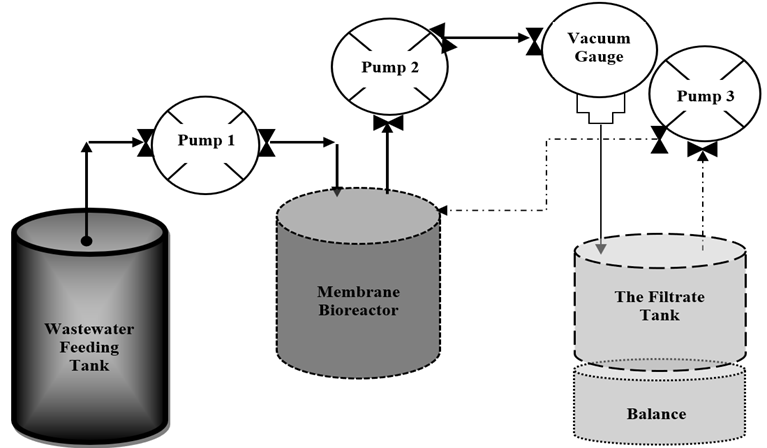
Wastewater generated in oil production and refinery industries contains high levels of pollutions. Water from the oil production field is the largest source of wastewater in the oil production and refinery industry. It can cause environmental problems on a global scale due to its high volume and pollutant properties. The treatment of produced water and refinery wastewater is traditionally carried out by physical, chemical, and biological treatment processes. In recent years, it has been focused on the use of membrane technologies. In the treatment of oil production wastewater, membrane bioreactors are used as pre-treatment and / or direct treatment methods. In this study, the treatability of wastewater generated in the oil production field by membrane bioreactor was investigated. The system has been operated for 70 days and its efficiency has been evaluated. Treatment parameters such as chemical oxygen demand, total solids, total nitrogen, total phosphorus, Alkalinity, and conductivity were analyzed. In addition, flux and transmembrane pressures were measured. Result, chemical oxygen demand, total solids, total volatile solids, suspended solids, total phosphorus, total nitrogen and sulfate, average removal efficiencies 65%, 65%, 58%, 73%, 70%, 50%, and 57% was obtained, respectively. It has been determined that the system used can be used in petroleum production wastewater treatment.
Total file downloads: 8